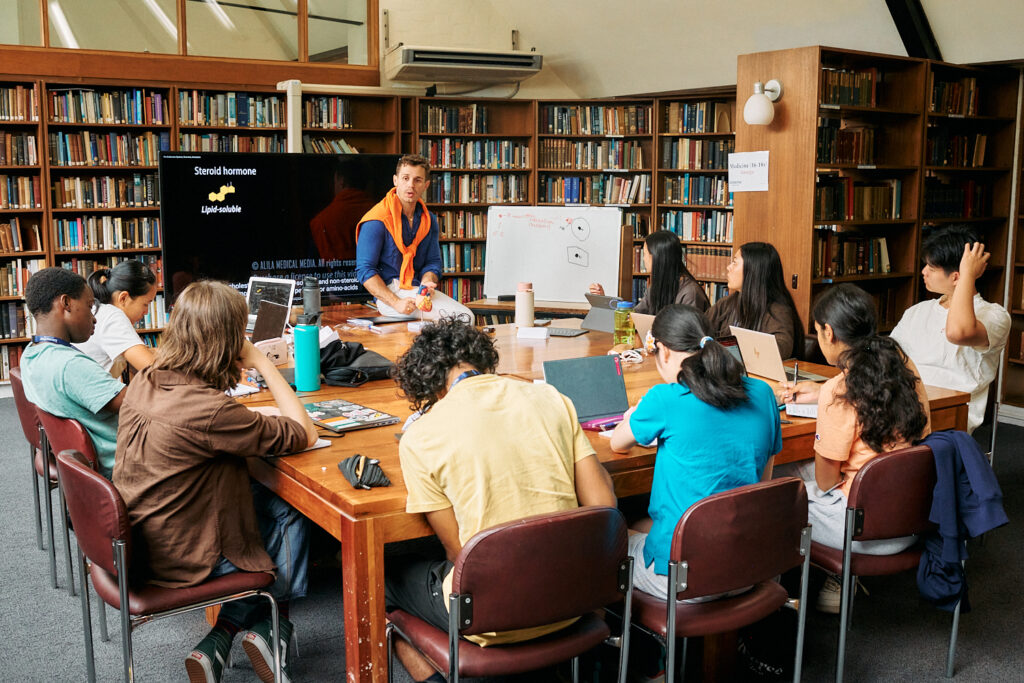Choosing a university is likely the greatest decision of your life so far, and it’s not a decision to take lightly. The university you choose, its location, and its facilities might influence how you perform in your degree or even the path you take in your future career. Although it’s a daunting decision, choosing a university doesn’t have to be stressful or overwhelming.
There are 166 universities in the UK alone, and 103 are listed in the Times Higher Education World University Rankings 2023! The right university is instrumental for effective learning. A university’s ranking, courses, costs, environment, amenities, teaching materials, and available work experiences will all make a difference. Moreover, the location will impact your social experience and ability to explore a new town, city, or region or even hobbies and interests away from home.
This guide will take you through some key factors to consider so you can comfortably conduct further research, compare your options, and ultimately make the right thrilling decision.
9 Key Factors to Help You Choose a University
Experience Your University
A fantastic way to experience your chosen university firsthand is to take an Immerse Education summer program. Programmes are available at several renowned universities in the UK and abroad.
The Course
Your primary consideration will be the course. By now, you’ve probably chosen your career path, but every university will differ in the course content, the tutors, the learning methods, practical versus academic time, and the equipment and facilities available. These are all crucial elements to consider, and you will want to find the answers to some or all of the following questions:
- Does the course focus on the area in which you wish to specialise?
- Will you have any freedom to choose modules or pathways?
- How will you be assessed? What accreditation will you gain?
- How are the university and the course rated in the UK and world rankings?
- Are the tutors or professors reputed in your field of interest?
- Will the university’s research activity be of interest or benefit?
- What practical experience, work experience, or career insights could you gain?
- Does the course align with the flexibility, accessibility, or learning style you need?
- Are students of this course and university in demand? Do graduates find work quickly?
For a detailed look at how to choose a university based on a course, check out our article on the topic.
University Ranking
How a university is ranked in a country and in world rankings will tell you how good it is but also how positively your qualification might be viewed by future employers. Often, employers seek out graduates from specific universities and courses, and they, too, will understand how well a university is ranked for its teaching of a subject or discipline.
Here are some ranking publications to look for:
- The Complete University Guide
- QS World University Rankings**
- Times Higher Education World University Rankings**
- Times Higher Education “Table of Tables”
- Academic Ranking of World Universities**
- Other publications by The Times, The Guardian, The Daily Telegraph, or Financial Times, as available
**International rankings
You’ll also want to check out the National Student Survey for the UK, which draws results from participating final-year students. Every country will have its own reputed ranking systems and publications.
By searching online, you can find university rankings, real student reviews, and even articles comparing some of your ideal universities and courses side-by-side.
Student Experience
You can only put so much trust in university rankings, because they don’t always give a full picture. You can balance out the statistics with some real-life insights by asking students of the university what it’s like. If that’s unrealistic, you could instead look on the internet for forums and social media pages that feature students discussing their university.
Lots of universities will have student union pages (or JCRs – Junior Common Room is often the name for the undergraduate student body, as well as the social room to chill out in!) and these student unions often have social media accounts, websites, or an alternative prospectus that gives you a much more informal and relatable taste of uni life.
Related Read: Does University Ranking Matter in the UK?
Do some research and see if you can locate these for the universities you’re interested in; if you have any questions, don’t be afraid to send an email or direct message, as uni students are usually very willing and keen to share their experiences.
You can also sign up and have a look at our student life blog posts, which cover topics such as extra-curricular opportunities, managing social life and work and maintaining a good sleep schedule!
The Cost
It’s vital to understand any costs attached to universities and courses and to plan out your finances in advance. You’ll need to consider tuition fees, the cost of accommodation, transport, study supplies, food, and entertainment. If you plan to work while you’re studying, are there usually jobs for students available in the area, and what sort of work will your study schedule be conducive to? Some universities actively discourage work during term time, so this is an important factor, although there can be up to ~32 weeks a year outside of term time for seasonal work if that’s the case.
Depending on your course, what other equipment might you need? Do you need a powerful computer? An extra laptop? Lab equipment? Clothing and equipment for fieldwork and research?
Again, there are lots of resources online for students that explain the likely cost of studying and living for each university and its location. It’s not as fun as some of the other factors, but it’s something you’ll need to investigate before you can choose the right university.
Location
The first aspect of location to consider is whether you are going to be studying locally or moving away from home. Both choices have cost implications and may affect you socially and emotionally.
Next, you’ll want to think again about costs. If you’re studying in London, for example, the cost of living and transport will be more expensive than other cities in the UK.
Perhaps the location is important because you’re likely to start your career there. Maybe you would like to be away from home but not too far that it’s cost-prohibitive to visit home frequently?
It’s also essential to think about whether you would like to live in the university town or city and if that matters to you. Do you want to live in a big, busy city or a quieter rural area?
Environment
It’s not just about the location but also the immediate university environment and where you’ll be living. A large university in a big city will have a different layout and on-site facilities than a campus-style university that feels more like a student community.
Making the right university choice will affect how you feel while studying, your motivation, and your performance. Take some time to look at photos and videos of a university and use Google Earth to really get a feel for the layout and environment.
Facilities
Now, dig a little deeper into the university or campus facilities. How many labs are there, and what technology is available? How extensive is the library? Is there a gym? How many restaurants are easily accessible?
Next, what universities, sports, and societies are available, and how important are these to you? Do they cater to your hobbies or provide you with an opportunity to pursue new interests?
University is often said to be one of the best times of your life, and it certainly should be one of the most exciting and fun! You should be choosing a university because it makes you feel excited and positive about studying and living there, not because it topped the uni league tables last year!
If there is a particular society or sports team that you would love to be involved with, these are great reasons to choose a uni (along with the course content, naturally!); whilst you are there primarily to study and work, the social side of things is just as important for your mental health and happiness.
Open Days
There’s nothing better than spending time at a university and the surrounding area to know if you are making the right choice. Open days allow you to visit, explore, meet tutors and staff, ask questions, and get a feel for where you’ll be spending the next few years.
Several websites have searchable listings for university open days. UCAS.com is always a great resource, and there is also FindOpenDays.com, and a quick search will find other resources.
Conclusion
Phew! That’s a lot to consider, right? Don’t worry. Approaching your research and decision armed with what you need will make it far easier to choose the right university for you. We can’t stress the importance of evaluating all these factors and any more you can think of depending on your career path and personal preferences.
Taking the time to investigate and compare courses, universities, facilities, and locations will empower your choice and ensure you have the most enjoyable and productive university experience!
At Immerse Education, we offer summer schools and programs for students aged 13-18 at some of the best universities in the UK and abroad. A summer program lets you live and learn like an undergraduate and truly experience what life is like at your chosen university.
Sources:
https://www.timeshighereducation.com/student/advice/everything-you-need-know-about-studying-uk
https://www.studentcrowd.com/page/the-cost-of-university-in-the-uk
https://en.wikipedia.org/wiki/Rankings_of_universities_in_the_United_Kingdom
https://www.topuniversities.com/blog/choosing-university-how-university-rankings-can-help
https://study-uk.britishcouncil.org/plan-studies/choosing-university-college
https://www.timeshighereducation.com/student/advice/how-choose-uk-university
Join the Immerse Education 2025 Essay Competition
Follow the instructions to write and submit your best essay for a chance to be awarded a 100% scholarship.



























